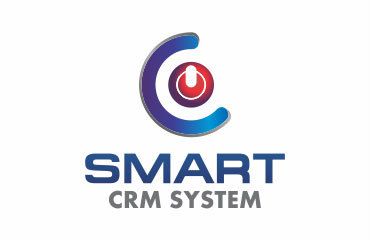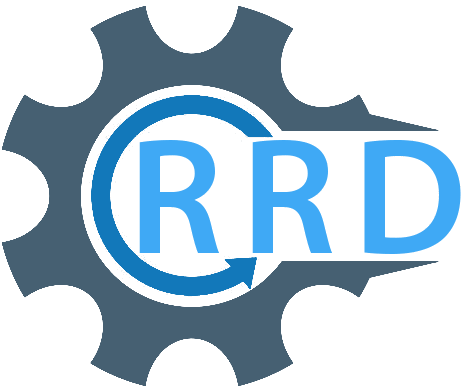Yes, current sales management software is meant to be available from a variety of devices and platforms. This means you can access your sales data and tools from your laptop, phone, tablet, or any other internet-connected device. Good sales management software leverages cloud technology to sync data across devices, providing you the freedom and convenience of working from anywhere. This ensures seamless communication and uniformity across your sales process.
List of 20 Best Sales Management Software
Apttus CPQ is a sales management software that automates the configured price quoting process. Specifically designed for sales teams, it eliminates the need for multiple offerings and provides guidance for streamlined selling and approval procedures...Read More Apttus
Stock Register is a inventory management and billing solution tailored for small businesses. With comprehensive features such as stock tracking, daily sales and purchase monitoring, and party balance management, this software is guaranteed to enhance...Read More Stock Register
Cratio CRM - the premier solution for all your CRM requirements. Our state-of-the-art software is fully customizable, backed by exceptional support, and comes with a guaranteed track record of success. From B2B and real estate to education, finance,...Read More Cratio CRM
Salesinteract is a CRM solution that provides a 30-day free trial without the need for a credit card. Our platform boasts a user-friendly dashboard that displays live sales and user data, eliminating the need for additional plugins. Experience unprec...Read More Salesinteract
Apparound Sales Management is a digital sales solution. This innovative tool seamlessly integrates content and quoting for a more efficient sales process. With advanced features like creating catalogs, integrating SlideShare, managing video scripts,...Read More Apparound Sales Management
AgileCRM is a CRM solution, provides a range of features including contact management, marketing automation, web analytics, telephony, newsletter management, real-time activity alerts, and seamless third-party integrations. Its advanced tools and fun...Read More AgileCRM
Gripsell CRMs Sales Management module solution for businesses seeking flexibility and efficiency in their sales processes. Our powerful tool allows for seamless document linking, giving you the freedom to customize the order of orders, shipments, and...Read More Gripsell CRM
Hightail is a platform for seamless collaboration and project management. With its advanced tools, you can effortlessly share files and gather feedback from your team. Stay organized by keeping all project materials in one place. Boost your productiv...Read More Hightail
Cerrebro CRM is a cloud-based solution for managing field teams and connecting with customers and back-office staff effortlessly. With a convenient dashboard accessible from any device, you can increase productivity and streamline processes in any in...Read More Cerrebro CRM
TeamWave is a business solution that combines project management, CRM, and HRMS functionalities into one platform. Built on top-rated SaaS applications, our goal is to provide a unified solution for all your business needs. Say goodbye to using multi...Read More TeamWave
Experience efficient lead management with Dquips CRM. Our powerful solution simplifies your lead acquisition, qualification, verification, assignment, and prospecting processes. Stay on track with your sales targets and boost lead conversions with ou...Read More Dquip's CRM
Twirll is a dynamic platform that revolutionizes business growth through automation. Our cutting-edge tools for operations and marketing effortlessly merge several sales channels, providing a comprehensive solution. Elevate your business with Twirlls...Read More Twirll
Bonsai - the essential software for small businesses, agencies, and self-employed professionals. Simplify your entire business process with features like proposal generation, contract tracking, invoicing, and tax assistance. Eliminate tedious tasks a...Read More Bonsai
LeadSquared is a platform designed to help businesses attract and retain customers. With its advanced features, LeadSquared facilitates seamless teamwork between Sales and Marketing teams, resulting in effective customer engagement. Our powerful comb...Read More LeadSquared
Vitalblocks CRM is a choice for businesses seeking a premium CRM solution. With 8 years of expertise and a worldwide client base, we are a renowned cloud company in the industry. Our unmatched services have established us as a trusted name for fulfil...Read More Vitalblocks CRM
our cutting-edge solar business management solution - Solar Business Software. With the growing demand for renewable energy, it has become imperative for companies to have a versatile tool to manage customers and projects. Our software provides a sol...Read More Solar Business Software
Salesloft is a platform that simplifies your sales communication. With email and call tracking combined, you can gather valuable engagement data to guide your next move and streamline your sales process. Keep all your communication activities organiz...Read More Salesloft
Smart CRM System is a software solution designed to assist businesses in managing customer data, interactions, and crucial business information. With its various applications, this system automates sales, marketing, and customer support processes, wh...Read More SMART CRM SYSTEM
Round Robin Distributor is a tool for Sales and Service teams to streamline lead assignment and case routing. With automatic distribution, territory and skill-based routing, and relationship-based assignment, this software ensures fair and efficient...Read More Round Robin Distributor
Vtiger One is a cloud-based CRM solution tailored for small and medium-sized businesses. Our versatile platform includes Sales, Help desk, Marketing, Projects, and Inventory features, all seamlessly integrated with our cutting-edge customer One View...Read More Vtiger CRM
Learn More About Sales Management Software
- What Is Sales Management Software?
- What Are The Recent Trends In Sales Management Software?
- Benefits Of Using Sales Management Software
- Important Factors To Consider While Purchasing Sales Management Software?
- What Are The Key Features To Look For In Sales Management Software?
- Why Do Businesses Need Sales Management Software?
- How Much Time Is Required To Implement Sales Management Software?
- What Is The Level Of Customization Available In Sales Management Software?
- Which Industries Can Benefit The Most From Sales Management Software?
- Conclusion
What Is Sales Management Software?
Sales management software is an effective tool for streamlining and automating many areas of a company's sales process. It is intended to help sales teams handle leads, track progress, and complete deals more effectively. This program acts as a hub for all sales-related activities, offering a complete picture of the sales pipeline and critical performance data.
Lead management is a fundamental element of sales management software, allowing organizations to track all client interactions and organize leads based on their stage in the sales process. This makes it easier for sales teams to prioritize and follow up on leads, leading in improved lead qualifying and conversion rates. In addition to lead management, sales management software includes communication capabilities such as email and phone tracking, which allow sales personnel to stay in touch with prospects and clients while also providing useful insights into their interactions.
This allows firms to identify and repeat effective communication tactics, thereby improving their overall sales approach. Another important aspect of sales management software is the ability to generate reports and analytics. With real-time data on sales performance, revenue, and conversion rates, businesses can rapidly discover areas for improvement and make data-driven decisions to enhance their sales operations.
Furthermore, sales management software frequently integrates with other company tools such as CRM systems, marketing automation platforms, and payment processing systems to provide a smooth flow of information across departments and tasks.
What Are The Recent Trends In Sales Management Software?
As technology advances and plays an increasingly important part in the sales process, sales management software has become an essential tool for organizations of all kinds. Sales management software streamlines and automates numerous sales processes, allowing sales teams to perform more efficiently and close deals faster. However, with the ever-changing environment of sales management software, it can be difficult for buyers to stay up with the latest trends and capabilities.
Buyers should be aware of the following recent trends in sales management software:
1. Cloud-Based Solutions: With the development of remote work and the demand for flexibility, cloud-based sales management software has gained popularity. These solutions give users access to real-time data and updates from anywhere, making it easier for sales teams to collaborate and keep on top of their workload.
2. Artificial Intelligence (AI) And Machine Learning: Sales management software powered by AI and machine learning automates routine processes, freeing up sales people to focus on more important duties like client relationship building. These technologies can analyze data to detect trends and forecast outcomes, allowing organizations to make more educated decisions.
3. Integration With Other Business Tools: Modern sales management software is built to work smoothly with other critical business tools like CRM, marketing automation, and project management software. This facilitates a more efficient sales process and provides correct data management across all platforms.
4. Mobile Optimization: As sales teams increasingly rely on mobile devices to do business, sales management software has developed to be mobile-friendly. This means that customers may now access the program via their smartphones and tablets, allowing them to manage tasks and access data while on the road.
5. Emphasis On Visual Data: In today's fast-paced corporate environment, sales teams must be able to swiftly absorb and analyze data. As a result, modern sales management software often uses interactive dashboards and graphs to convey data visually. This improves consumers' ability to analyze and interpret data, resulting in better decision-making.
Benefits Of Using Sales Management Software
Sales management software is a strong tool that may help firms improve their sales processes, increasing efficiency and productivity. In today's competitive corporate environment, a strong sales management system is critical to success.
Let's explore, we'll go over the main benefits of adopting sales management software to help you make an informed decision for your company.
1. Automatic Lead Management And Tracking: One of the most significant advantages of adopting sales management software is the ability to automate lead handling and tracking. Manual lead management can be arduous and error-prone, resulting in missed opportunities and wasted resources. Sales management software may automatically acquire, track, and assign leads to the appropriate sales agents. This simplifies the lead nurturing process and guarantees that no leads fall through the gaps.
2. Centralized Sales Data: Sales management software creates a consolidated database for all sales data, such as customer contact information, sales history, and communication history. This removes the need for multiple spreadsheets and ensures that all data is up to date and readily available. A unified system also makes it easy to monitor sales patterns and consumer behavior, allowing for more informed business decisions.
3. Better Communication And Teamwork: Sales management software frequently includes built-in communication features such as email and instant messaging, enabling sales teams to cooperate and communicate effectively. This eliminates the need for multiple email threads and allows for real-time communication, resulting in faster response times and more effective teamwork.
4. Sales Forecasting And Analytics: Sales management software provides extensive analytics and reporting capabilities, enabling firms to track sales performance and develop accurate sales forecasts. This data can help firms discover areas for improvement, set realistic sales targets, and change their strategy to attain the desired results.
5. Improved Client Satisfaction: By automating processes, improving communication, and tracking client interactions, sales management software can assist firms in improving overall customer service. With all of the relevant information at their fingertips, sales representatives can create a more personalized and efficient experience for customers, resulting in increased satisfaction and loyalty.
6. Time And Financial Savings: Implementing sales management software can save firms time and money in the long term. Automation of manual operations and enhanced team communication can result in a more effective sales process, requiring less time and resources to close deals. Furthermore, with accurate forecasting and analytics, organizations may make more informed decisions, reducing the risk of wasted investments.
Important Factors To Consider While Purchasing Sales Management Software?
Keeping track of all the duties, leads, and deals in your sales team can be difficult. This is where sales management software comes in. With so many options available on the market, it might be difficult to select the best one for your organization.
To make an informed decision while selecting sales management software:
1. Sales Process And Workflow: Before making a purchase, you should plan out your sales process and workflow. This will assist you in determining the precise features and functionalities that you require in the software. For example, do you require a solution for lead management, contact management, or pipeline tracking? Knowing your sales process will assist you in selecting software that meets your company's requirements and is easy to integrate into your workflow.
2. Accessibility And Compatibility: The sales management software must be accessible and compatible. Can it be accessed via any device, including desktops, laptops, and mobile phones? Is it compatible with your operating system and other tools you already use? A cloud-based software that is accessible from anywhere can help your sales force be more efficient and productive.
3. User-Friendly Interface: The program should have a simple interface that your staff can quickly adopt and use. Complicated software with a high learning curve might impede productivity and necessitate additional training. Look for software that provides a demo or trial period to better grasp its interface and functionality.
4. Integration Capabilities: Your sales management software should be able to integrate with other tools and software utilized in your company. This will help you streamline your procedures and eliminate data silos. For example, if you use a CRM, your sales management software should work fluidly with it to eliminate duplicate data entering.
5. Customization And Scalability: Every organization has distinct requirements, and the software should be adaptable to meet those demands. Look for software that allows you to add and remove capabilities based on your business requirements. Furthermore, examine the software's scalability. Will the software be able to handle your company's growing workload and number of users?
6. Analytics And Reporting: Analytics and reporting are critical for assessing the performance of your sales staff. The program should generate extensive statistics and analytics on a variety of topics, including sales performance, lead conversion rates, and individual team member progress. This will enable you to make data-driven decisions and enhance your sales strategy.
7. Customer Support And Training: Reliable customer support and training are essential while utilizing any product. Look for a provider who provides 24/7 assistance and thorough training tools to help your team become acquainted with the product. This will enable a seamless onboarding process for your personnel while minimizing disruptions to your normal operations.
What Are The Key Features To Look For In Sales Management Software?
Sales management software is a strong tool that enables firms to optimize their sales operations and increase overall productivity. With so many options on the market, it can be difficult for consumers to select the best software for their unique requirements.
To simplify the purchasing process, here are the important elements to look for in sales management software:
1. Lead And Customer Management: This is the primary purpose of sales management software. It should be able to track and manage leads, prospects, and customers. Look for tools like lead scoring, segmentation, and automated follow-ups to help you manage your client database more successfully.
2. Sales Pipeline Management: Comprehensive sales management software should show a visual depiction of your sales funnel. This enables you to track the development of negotiations, identify bottlenecks, and make informed decisions to finish deals more quickly.
3. Contact And Account Management: Software that allows you to create and manage contacts and accounts can assist you in keeping a centralized database of all your clients, prospects, and leads. This feature can also provide insights into customer behavior and purchase habits, allowing your sales team to tailor their approach.
4. Reporting And Analytics: In today's data-driven business environment, reporting and analytics are critical to making strategic decisions. Look for software that allows you to create customized reports and view real-time data to track sales performance, detect patterns, and anticipate future sales.
5. Integration With Other Tools: Select sales management software that works easily with your existing tools, such as CRM, marketing automation, and accounting software. This ensures a smooth data flow and eliminates the need for human entry.
6. Mobile Accessibility: With the development of remote work and on-the-go sales teams, it is critical to have software that is mobile friendly. Look for software that includes a mobile app with key capabilities such as lead and contact management and real-time notifications.
7. Automation And customisation: Automation and customisation are important aspects to look for in sales management software. These capabilities can dramatically increase your team's productivity and efficiency by automating monotonous chores such as data input and follow-ups, as well as tailoring the software to meet your specific sales processes.
Why Do Businesses Need Sales Management Software?
Sales management software is an essential tool for businesses of all sorts, from small start-ups to major enterprises. In today's fast-paced and competitive company environment, having effective systems in place to manage and track sales activity is critical to success. Sales management software offers a variety of features and functionalities to assist firms streamline and optimize their sales operations, resulting in enhanced efficiency, productivity, and profitability.
One of the key reasons why firms want sales management software is to centralize and organize their sales data. This program enables sales teams to store and access all of their customer and prospect information in a one secure database, reducing the need for several spreadsheets or papers. This allows salespeople to spend more time engaging with leads and completing deals rather than searching through heaps of paperwork.
Another important feature of sales management software is its capacity to automate repetitive and time-consuming processes. This covers lead monitoring, contact management, and transaction tracking, which are all critical components of the sales process. Sales teams can save a substantial amount of time and effort by using automation, allowing them to focus on high-value tasks such as developing client connections and closing sales.
Sales management software also includes capabilities that help organizations monitor and track their sales progress. Real-time reporting and analytics solutions provide significant insights into sales performance, enabling firms to discover areas for improvement and make informed decisions. These data can assist firms understand their clients and their purchasing habits, allowing them to modify their sales strategy accordingly.
Effective communication is critical for effective sales, and sales management software may assist firms in this area as well. Sales teams may cooperate more efficiently by using features like task management and email integration, which improve communication and coordination among team members. This results in a more unified and productive sales team.
Finally, sales management software enables firms to keep track of essential activities and deadlines, ensuring that no leads slip through the cracks. Salespeople can use tools like reminders and notifications to ensure they follow up with prospects at the appropriate time, increasing their chances of converting leads into customers.
How Much Time Is Required To Implement Sales Management Software?
The time necessary to establish sales management software varies depending on your company's individual requirements and complexity. On average, the software can take anywhere from a few weeks to a few months to properly integrate and function. This may include time spent on installation, data migration, customisation, and team training.
It is critical to collaborate closely with the software vendor to create a timeline for implementation and ensure that all necessary processes are executed promptly. This includes assessing which features and modules are critical to your business and prioritizing their installation. The size of your sales force, the complexity of your sales process, and your existing systems and tools can all have an impact on the installation timeline.
To guarantee a smooth and timely deployment process, it is critical to have a thorough grasp of your company's needs and goals before choosing a sales management software. Furthermore, selecting user-friendly and straightforward software will assist your team reduce the learning curve, thus shortening the time required for training and adoption.
It is also critical to have a strategy in place for continuous maintenance and support, as well as any extra features or changes that may be required for your company in the future. This can help you make the most of your investment and ensure long-term success with sales management software.
What Is The Level Of Customization Available In Sales Management Software?
Sales management software helps organizations optimize their sales operations and increase overall efficiency. The level of customisation provided is a key factor to consider when choosing a sales management software. Customization enables firms to modify software to their individual requirements, making it a worthwhile investment for long-term success.
The level of customisation in sales management software varies substantially based on the vendor and the capabilities given. In general, there are three types of customization: basic, advanced, and totally customizable. Basic customisation usually involves the option to add and remove fields and sections, modify color schemes, and upload company logos.
This level of customization is perfect for small enterprises or those seeking a straightforward and user-friendly interface. sophisticated customisation provides greater control and flexibility by enabling users to construct custom workflows, automate procedures, and configure sophisticated reporting tools. This level of customization is appropriate for medium-to-large organizations with more sophisticated sales processes.
Fully configurable sales management software is intended for enterprises with very specific requirements. This level of customization allows customers complete control over the software's layout, design, functionality, and integrations. It is ideal for large enterprises with particular sales procedures and a dedicated IT team to oversee modification.
When determining the level of customisation available, it is critical to evaluate your company's current demands as well as future expansion goals. A software with more customization choices may be more expensive, but the investment will be worthwhile in the long term because it can adapt to your evolving business needs. In addition to customisation, it is critical to ensure that the software's user interface is intuitive and simple to use. This will save your team time and money on training while also ensuring a seamless software adoption process.
Which Industries Can Benefit The Most From Sales Management Software?
Sales management software is a powerful tool that may transform how firms manage their sales processes. This software provides numerous benefits for various businesses, including increased efficiency and production as well as improved customer relationship management.
Let's explore, we'll go over the top sectors that can profit the most from incorporating sales management software into their operations.
1. Retail Industry: In the retail industry, everything revolves around sales and customer happiness, and sales management software can be a game changer. This software, which includes inventory management, real-time sales data, and customer relationship management, can help retailers optimize their sales operations and improve the customer experience.
2. Manufacturing Industry: Sales management software can help organizations handle orders, track sales performance, and estimate demand. It also enables greater coordination between the sales and production teams, resulting in fast order fulfillment and customer satisfaction.
3. Real Estate Market: The real estate market is extremely competitive, and keeping ahead of the game necessitates good sales management. Real estate agents can use sales management software to track leads, plan appointments, and manage their listings all from one spot. This streamlines the sales process and improves contact with clients, resulting in greater sales and revenue.
4. Technology Industry: In the fast-paced technology industry, a strong sales management system is essential. Sales management software can assist technology companies oversee their sales pipelines, analyze performance, and estimate revenue, providing them a competitive advantage in the market.
5. Healthcare Industry: The healthcare industry handles a high volume of sales and customer data, which can be difficult to manage effectively. Sales management software can assist healthcare firms streamline their sales activities, including tracking leads and appointments and managing client relationships. This leads to increased efficiency and enhanced patient satisfaction.
6. Financial Services Industry: In the financial services industry, good sales management is critical to staying ahead of the competition. Financial organizations can use sales management software to track customer contacts, manage leads, and measure sales effectiveness. Advanced analytics can also provide insights into customer behavior, allowing financial institutions to better customize their services to their clients' demands.
Conclusion
To summarize, Sales Management Software provides numerous benefits for firms trying to optimize their sales operations and boost efficiency. This program has the potential to significantly improve a company's sales operations by organizing client data, tracking sales performance, and creating thorough reports. When considering acquiring Sales Management Software, it is critical to carefully examine your company's needs and select a platform that provides functionality and customization choices that meet your specific requirements.
Furthermore, it is critical to select a recognized and dependable software vendor with an established track record in the business. Some important things to consider while making a decision include the software's usability, integration capabilities with existing systems, and scalability for future growth. It is also critical to evaluate the software's security measures and customer support choices to ensure that your data is secure and that help is easily available if needed.
Finally, it is recommended that you take advantage of free trials or demos provided by software vendors to gain direct familiarity with the platform before making a purchase. We hope our buyer's guide has provided useful information and considerations for choosing the best Sales Management Software for your company. With the appropriate software in place, you can expedite your sales operations, strengthen client interactions, and eventually raise your company's income.
Sales Management Software FAQ's
Can Sales Management Software Be Accessed Across Multiple Devices And Platforms?
Is Sales Management Software Future-Proof And Adaptable To Emerging Technologies Like AI, Blockchain Or IoT?
Sales management software is continuously changing to stay up with new technologies. Many providers have already implemented AI, blockchain, and IoT capabilities on their systems. This not only increases sales process efficiency and accuracy, but it also delivers significant company insights. Sales management software is future-proof and adds value to organizations of all sizes by allowing them to adapt to and embrace evolving technologies.
Is There A Free Trial Offered To Assess Sales Management Software Before Committing?
Yes, many sales management software companies provide free trial periods so that potential clients can evaluate the product before making a purchase. This helps customers to get a feel for the software's features and functionality before deciding whether it fulfills their unique requirements. It is usually advisable to use free trials to evaluate and compare several possibilities before making a selection.
Does Sales Management Software Offer Data Security Features And Meet Regulatory Compliance Standards?
Yes, most sales management software includes data security features like encryption, access limits, and regular data backups to protect your company's critical information. Furthermore, many of these software solutions are built to meet stringent regulatory compliance standards such as GDPR and CCPA, ensuring that your company complies with data protection rules. This not only secures your data but also helps to develop trust with your consumers.
Can Sales Management Software Integrate Seamlessly With Existing Tools And Platforms?
Yes, most sales management software is designed to work smoothly with existing tools and platforms, allowing firms to streamline their sales operations. Whether you utilize CRM software, email marketing tools, or accounting platforms, sales management software can help you increase productivity and accuracy. This provides you with a centralized system for handling your sales data, eliminating the need for manual data entry.






















